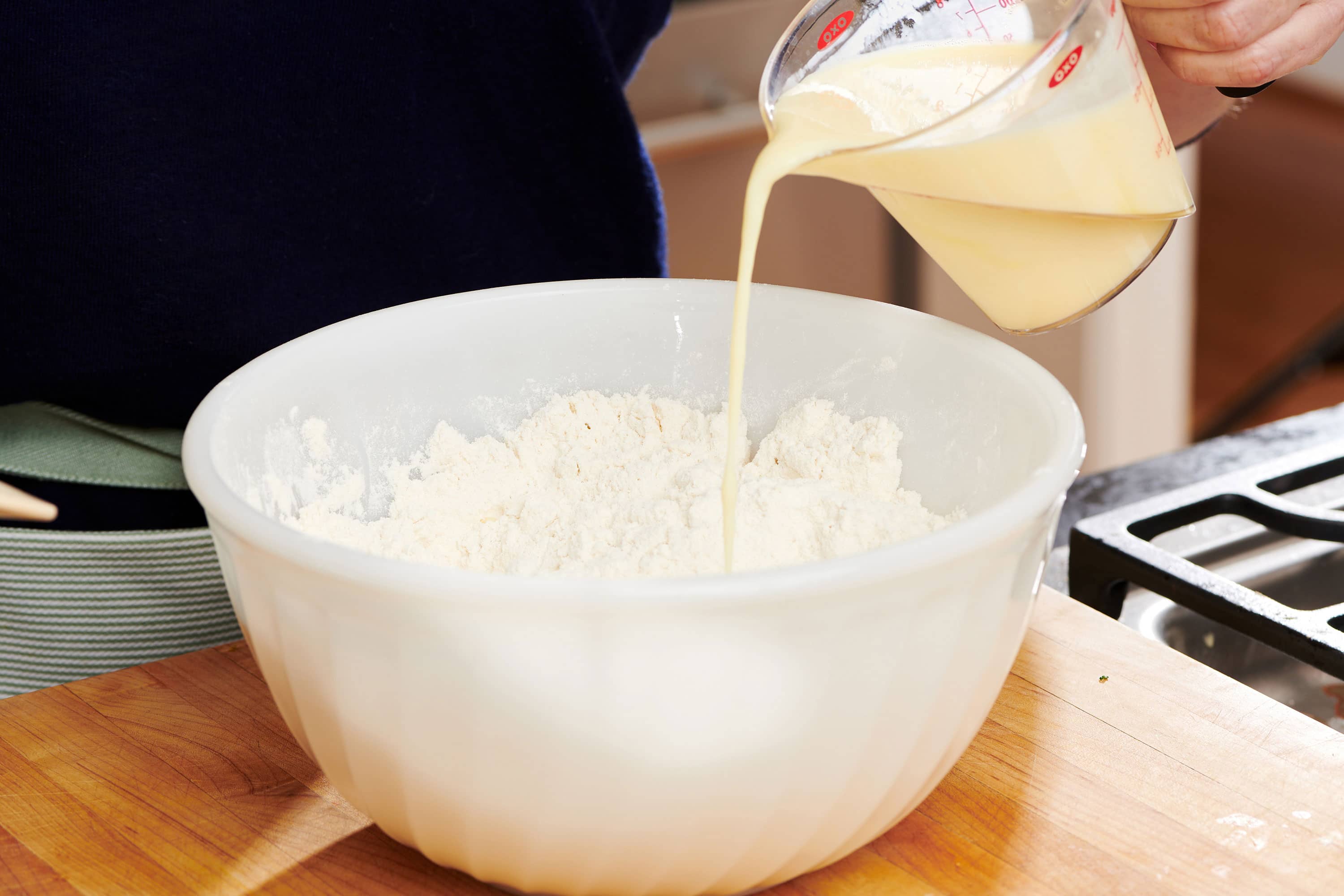It happens to the best of us — we think we have the right leavener on hand, and it turns out we have baking soda when we actually need baking powder, or baking powder when a recipe calls for baking soda. But you can usually substitute one for the other and save yourself a trip to the market!
Baking soda is much stronger than baking powder. To make baking powder, mix one part baking soda and two parts cream of tartar. So, if you recipe calls for 1 tablespoon of baking powder, use 1 teaspoon of baking soda, mixed in with 2 teaspoons of cream of tartar.
/TC_607372-substitute-baking-powder-and-baking-soda-5abaaa97ba617700376d9fde.png)
How to Substitute Baking Soda for Baking Powder
You can substitute baking soda for baking powder. Just use:
- 1/3 teaspoon baking soda for every 1 teaspoon baking powder
- 2/3 teaspoon baking soda for 2 teaspoons baking powder
- 1 teaspoon baking soda for 1 tablespoon baking powder
If you have cream of tartar, that’s even better! Add cream of tartar in double the amount of the baking soda when subbing it for baking powder, so:
- ⅓ teaspoon baking soda plus ⅔ teaspoon cream of tartar for every 1 teaspoon baking powder
- ⅔ teaspoon baking soda plus 1 ⅓ teaspoon cream of tartar for 2 teaspoons baking powder
- 1 teaspoon baking soda plus 2 teaspoons cream of tartar for 1 tablespoon baking powder
What Does Double-Acting Baking Powder Mean?
It means that the baking powder is first activated when it hits moisture and is then activated a second time when it goes into the heat of the oven. Most baking powder on the market is double-acting and will say so on the label.
Baking soda has a decent shelf life. An unopened box will keep well for almost 2 years (check the best-by date), while an open box should be used within 6 months. After that, it may still work, just not as well in baked goods. And, don’t use the baking soda you use to deodorize your fridge; it will pick up odors that simply don’t taste great in cookies and bread!
Baking powder should be used within 6 months after you open the container. An unopened container could be stored for about a year and a half. Like baking soda, baking powder that sits around for too long will lose its potency and result in less-than-stellar baked goods. It’s best to buy the smallest amount possible for your baking needs and write a date on the container to remind you when to replace it.

Baking Powder From SCRATCH | Baking Powder Substitute
FAQ
How do I convert baking soda to baking powder?
What happens if you replace baking soda with powder?
How is baking soda converted into powder?
What can I use if I dont have baking powder?
Can baking soda be turned into baking powder?
The simple ingredient you can add to transform baking soda into the all-inclusive baking powder is another pantry powder you may have on hand — cream of tartar. Cream of tartar is the missing acid needed to activate the baking soda.
Is baking soda safe to use as a teeth whitener?
Because of its mild abrasive qualities, baking soda, is frequently used as a natural remedy for tooth whitening. It may remove surface stains from teeth, making them appear whiter. However, it also has some disadvantages. If a patient wants more significant and consistent teeth whitening effects, then they should check into professional whitening alternatives offered by dental professionals. They can provide treatments that are both effective and appropriate for unique needs, all while reducing the risk of enamel damage and other concerns.
Can I substitute baking soda for baking powder?
You can substitute baking soda for baking powder. Just use: If you have cream of tartar, that’s even better! Add cream of tartar in double the amount of the baking soda when subbing it for baking powder, so: ⅓ teaspoon baking soda plus ⅔ teaspoon cream of tartar for every 1 teaspoon baking powder
Do you need more baking powder than baking soda?
You need to use two to three times more baking powder than baking soda. This is because baking powder contains baking soda, but it also includes additional compounds. The extra ingredients in baking powder will affect the taste of whatever you are making, but this isn’t necessarily bad.
